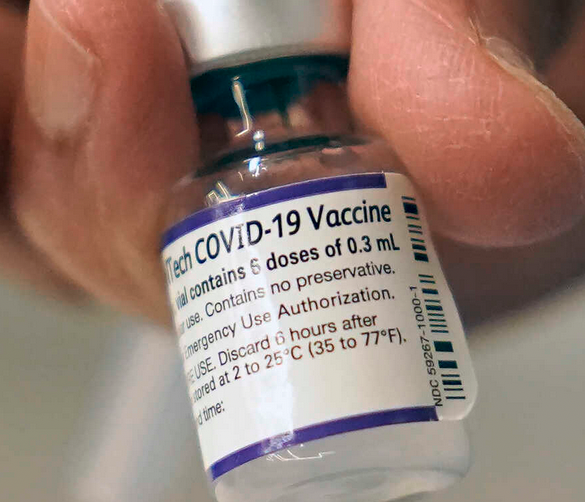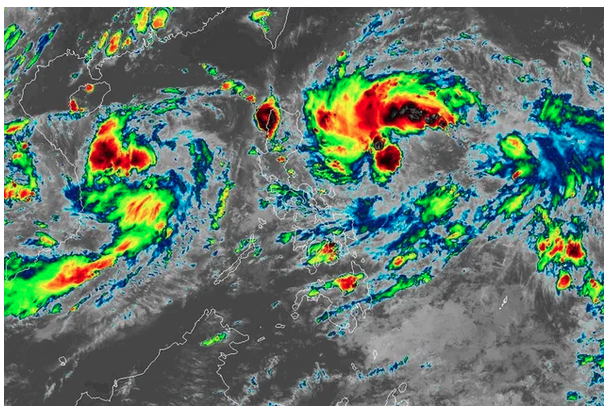Scientists have urged people to take a second booster shot of Covid-19 vaccine when they are offered the chance as the most infectious strain of Omicron drives a fresh surge of cases across the globe.
More countries and regions have widened eligibility for a second booster dose of Covid-19 vaccine as the BA. 5 variant continues to spread.
Earlier this week the European Centre for Disease Prevention and Control expanded eligibility to the over-60s and vulnerable people of any age, citing the rise in the numbers needing treatment in hospital and intensive care.
However, the European Union is withholding the second dose for the general population, citing a lack of strong evidence for its benefits.
In Britain, a second booster dose was offered to people aged over 75 years, care home residents and those with weakened immune systems. Australia has expanded the second booster to those over-30, while the US is reportedly looking to expand the current eligible group from the over-50s to all adults.
"There is no vaccine that prevents respiratory virus infection. There is no vaccine technology currently in use that has been shown to prevent influenza or Sars-CoV-2 infection," said Nathan Bartlett, a viral immunologist from the University of Newcastle in Britain.
"Current vaccines do not induce a strong, long lived protective immune response in the upper respiratory tract, which allows the virus to cause infection. However boosting your antibodies back up with a fourth dose does protect against severe disease and death."
The level of protection offered against more serious disease also wanes with time and reduces from above 90 per cent to less than 75 per cent among individuals whose last shot was delivered six months ago, according to professor Penelope Ward, a fellow of the Faculty of Pharmaceutical Medicine.
"We know that the new variants are able to infect and cause illness despite vaccination and the aim is to prevent people from developing more serious disease that needs hospital treatment or ICU," she said.
A large-scale study in conducted by the University of Tel Aviv in Israel, the first country to offer a fourth dose to its adult population, found that it reduced the risk of hospitalisation among elderly at-risk individuals by 64 to 67 per cent and the risk of death by 72 per cent. The study was published late last month in the journal JAMA Internal Medicine.
Bartlett said the protective effects of vaccines tend to drop with age because younger people are inherently more resistant to severe outcomes from Covid-19, but a second booster dose will still do them good.
"There is still benefit as boosting antibody levels back up is likely to reduce severity and duration of illness which will reduce transmission, and risk of developing long Covid."
Some people may be tempted to wait before taking a booster as vaccine makers, such as Moderna and Pfizer, are working on new versions to counter the Omicron variant and its latest strains. Both manufacturers have released data that show that their booster creates higher levels of protective antibodies against Omicron than current vaccines and both said they could be ready for this autumn pending regulatory approval.
But faced with the increasing spread of the BA. 5 subvariant, scientists warned it was better to act now rather than wait for a more effective vaccine.
James Trauer, head of Monash University's epidemiological modelling unit, said vaccine development was not really keeping up with the rate of mutation of the virus.
He said that by the time a vaccine that targets the BA. 1 variant of Omicron and the original strain of coronavirus becomes available, people might need to deal with the sublineage BA. 2.75, which was identified in India and has the potential to spread rapidly, or an unknown strain.
"We need to work with the vaccines that we have, because they generally remain safe and effective, but the immunity they induced wanes quite quickly. Therefore, vulnerable groups need to have their immunity topped up as waves of transmission come through," Trauer said.
"In open countries where the aim is to allow endemic transmission with minimal hospitalisation and mortality burden, it's still critical to get the elderly and vulnerable vaccinated. This is true even for vaccines that have lost some of their effectiveness because on the whole the vaccines have actually retained most of their effectiveness even against the new variants."
Jerome Kim, director general of the International Vaccine Institute, said the next generation of vaccines will not be widely available until late in 2022.
"Until then it is probably best to keep the boosters current, particularly for people in high-risk groups, those over 60, with immunocompromising conditions, or other diseases that will predispose them to higher risk of death," Kim said.
Copyright (c) 2022. South China Morning Post Publishers Ltd. All rights reserved.
Full story here: https://tinylinkurl.com/NkjrB







Comments
Authentication required
You must log in to post a comment.
Log in